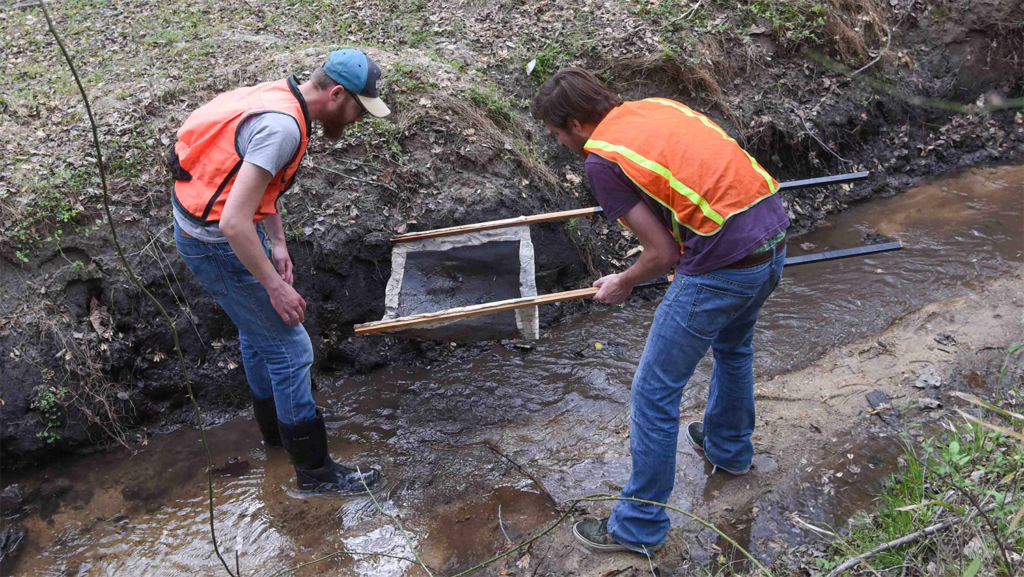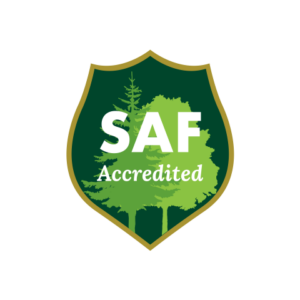Natural Resources

What is Natural Resources?
Interested in working to conserve our natural resources and helping keep people connected with nature? Our Natural Resources program — fully accredited by the Society of American Foresters (SAF) — blends science, economics, policy, technology and management techniques to prepare students to conserve our natural systems and green infrastructure in the face of a growing population and limited resources. Through hands-on learning and teamwork, students develop critical skills such as communication, collaboration and problem solving, all of which are needed to effectively address the challenges that arise when integrating people and nature.
Students interested in the environment, especially those who prefer a broad background, find that the Natural Resources program gives them the choice to concentrate their study in a variety of areas. The program is customizable with 21 elective credits. Students can choose electives to provide a breadth of knowledge or they can develop a specialization of their choice.
Some of the available electives include environmental law and politics, urban wildlife management, forest health and protection, and watershed and wetland hydrology. As part of their coursework, students also partner with local agencies (Triangle Land Conservancy, City of Raleigh, Wake County Open Space, etc.) to assess and analyze the impacts of urbanization on natural resources in one of America’s fastest-growing regions.
Our students graduate prepared for a wide range of professions — from consulting forestry to restoration ecology. In 2023, the median starting salary of graduates with a B.S. in natural resources was $57,000. Job opportunities in natural resources have been increasing, with 8% average projected growth over the next 10 years.
Concentrations
- Ecosystem assessment focuses on evaluating, analyzing and caring for resources in both rural and urban ecosystems, with an emphasis on land management practices.
- Policy and administration focuses on developing policies that protect both land and water through a science-based approach. With a strong background in economics, policy, government and public administration, students also learn to oversee natural resource programs in both public and private organizations.
Curriculum
- Semester by semester plan for the ecosystem assessment concentration
- Semester by semester plan for the policy and administration concentration
- Popular minors include applied ecology, environmental education, geology and wildlife science.
Commitment to Student Support and Professional Ethics
Our college is committed to fostering an inclusive and supportive environment for all students, offering resources through the Office of Culture and Community Excellence to enhance belonging and provide guidance throughout their academic journey. Both this office and the Office of Academic Affairs are available to assist students with concerns or grievances.

Additionally, we follow the SAF Code of Ethics, which serves to protect and benefit society by guiding members in their professional responsibilities. This code inspires and governs our students and professionals as they navigate their careers in forestry and natural resources.
The Planet is Our Classroom
Our students have completed internships assisting with turtle conservation, researching resilient crop methods with the U.S. Department of Agriculture, and studying the usability of environmental information as part of a National Science Foundation grant.
Learn More About Natural Resources
Forestry and Environmental Resources Student Success
What Can You Do With a Natural Resources Degree?
From pursuing careers with private industry or the government to continuing their research at the graduate and Ph.D. level, our natural resources majors graduate with options. With continued population growth, environmental degradation, the rapid development of sustainable technologies and the constant reconsideration of environmental policies, careers in this field will continue to be critical.
Career Opportunities
- Environmental Impact Assessor – Evaluating the environmental, social and economic impacts of proposed projects and developments by industry, government or private entities. Recent employers include Duke Energy.
- Natural Resources Administrator – Develop, support and implement programs to protect, manage and conserve wildlife and natural resources, such as forests, grasslands, soil and water. Recent employers include The Nature Conservancy.
- Restoration Ecologist – Develop and support environmental rehabilitation projects to restore damaged ecosystems. Recent employers include the NC Division of Water Resources.
- Natural Resources Educator – Provide local and state-wide education, training and technical support for environmental and natural resource issues. Recent employers include the U.S. Forest Service.
- Environmental Regulations or Enforcement Officer – Enforce federal and state laws and regulations to protect natural resources, wetlands, waterways and recreational facilities. Recent employers include Tomer Engineering.
- Environmental Project Manager – Oversee interactions with environmental regulatory agencies, perform site investigations, evaluate data and monitor project progress. Recent employers include the Institute for Forest Biotechnology.
- Director of Social Change – Develop and implement initiatives to promote stewardship and protect forest heritage. Recent employers include the American Forest Foundation.
- Program Director – Develop and support programs to educate others about the role of clean water and to take an active role in community decision making. Recent employers include the Miami Waterkeepers.
- Regional Partnership for Planning and Sustainability Coordinator – Promote coordination with other organizations to manage, sustain and enhance natural, economic, human and national defense resources. Recent employers include the T&M Natural Resources Institute.
Graduate Programs
Many students majoring in natural resources use their degree as a foundation for a graduate education. Recent graduates have pursued graduate programs in environmental law, forestry, soil science and environmental education. Students often choose to continue their research and education by pursuing graduate degrees through programs in the College of Natural Resources or at other institutions.
Ready to Make a Difference?

Schedule a visit to the College of Natural Resources

Learn about our Scholarships
